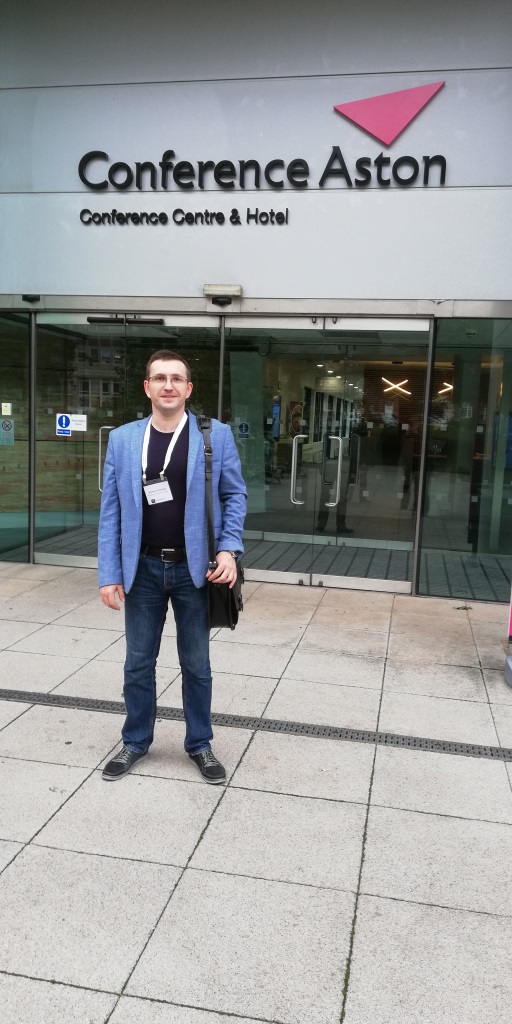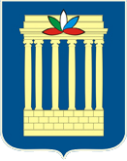ALEKSANDR VASILIEVICH SHULGA: PHYSICS AND SCIENTIFIC THINKING ARE INCOMPATIBLE WITH PREJUDICES
Aleksandr Vasilievich Shulga, PhD in Physical and Mathematical Sciences, an associate professor of the Department of Physics, is one of the leading researchers of the Belarusian-Russian University. Aleksandr Vasilievich is the author of over 30 publications and 3 patents.
We asked Aleksandr Vasilievich some questions about his professional activities.
-What are you currently working on?
-Our fields of activity are photonics and integrated optics. My area is intracavity waveguide spectroscopy. At present, photonics is replacing electronics. I can’t say that the potential of electronics is exhausted, but we can see its limits. Photonics is aimed at creating devices similar to electronic ones, but in these devices electrons are replaced by photons. Photons require less energy and move much faster. By using photons, you can process much more information as they have a number of properties that electrons and electronic devices do not exhibit. One of the most striking advantages of photonics over electronics is fiber-optic communication lines. Due to these lines, the modern Internet has come into existence. If ordinary wires were used, it would be very expensive, very slow and, as a result, annoying. We are creating devices based on optical thin films. Our task is not only to manufacture them, but also to control their optical properties. The originality of our approach is that we use the radiation that has not come out yet of the laser cavity and not the radiation that comes out of the laser. It is very sensitive to even the weakest losses.
-Has your research been presented internationally?
-We presented the findings of our research at conferences in Xi’an (China) and Birmingham (University of Aston, Great Britain). In China, our paper was one of the top five papers. A total of 300 papers in our research area were presented at the conference. Besides, we concluded a cooperation agreement with Aston University. Science is international. If a scientist limits himself or herself to one country, then this is the path to nowhere.
-How did you start your academic career?
-As a child I had a strong interest in optics and optical instruments. Therefore, I took a course at the Faculty of Physics of Gomel State University. My major is laser physics and spectroscopy. This is the field I am actually involved in. Then I was advised to pursue postgraduate studies. I asked where I could continue my studies, and they told me that there was an Institute of Applied Optics in Mogilev. I was very enthusiastic about that. Unfortunately, 2 years later the institute was closed. I must admit, that experience was short but very useful. The head of our team at the institute was Aleksandr Vasilievich Khomchenko. When the institute was closed, Aleksandr Vasilievich continued his career at the Belarusian-Russian University. After a while he invited us. In 2006, we created a thin film physics laboratory. Because of those events, the defense of my Ph.D. thesis was postponed by 5 years. As a result, I defended my thesis in 2014, when I was working at the Belarusian-Russian University. Initially, my research supervisor was Vsevolod Petrovich Redko, a corresponding member of the Academy of Sciences of Belarus. Then I continued my research under the supervision of Aleksandr Vasilievich Khomchenko, Doctor of Physical and Mathematical Sciences. At present, we are continuing to cooperate. The topic of my Ph.D. thesis was ‘Waveguide Spectroscopy of Laser Beams’. The research was devoted to studies of the spatial, spectral, frequency-angular characteristics of laser beams. We used prism communication devices for our research. There is a very interesting effect, optical tunneling, which makes the device sensitive to the distribution of light. The use of these devices provides more opportunities when it comes to measuring the profile of a narrow beam.
-What does teaching mean to you?
This is a wonderful process. First of all, we work with people, we do our best to teach our students knowledge and skills. Such work gives an understanding of how people are different and unpredictable. In addition, teaching is great intellectual work that gives you a feeling of satisfaction. After all, while we teach, we learn. And it contributes to our professional development. The famous physicist Pyotr Leonidovich Kapitsa said that universities are great because they provide education not only to students, but to professors and teachers as well. A scientist can benefit from teaching: we learn to express our thoughts, develop skills required for speaking in public (this is useful for speaking at conferences and when communicating with colleagues). But for me, the primary goal of teaching physics is to reduce the audience of the TV3 channel. Physics and scientific thinking are incompatible with prejudices. A scientist should always rely on facts and logic. A scientist should not have any inertness of thoughts.
-Do you work with novice scientists? What does a student who wants to pursue an academic career need?
-It’s no secret that we are facing a shortage of scientists. But still we are trying to increase students’ interest in science. When I speak to young people about their possible academic career, first of all I emphasize the importance of having good English language skills. A scientist who doesn’t know English condemns himself to isolation, because approximately 97% of the information can be obtained from English-language sources. Scientists might face difficulties due to a poor command of English. The second important point for a novice scientist is the absence of prejudices. Awareness of freedom from the prejudices and delusions, which some people might have, gives a sense of superiority verging on snobbery. Many physicists believe that there are only two sciences: physics and stamp collecting.
-What do you think are the most important characteristics of a modern researcher?
-A scientist should rely on facts, logic and experiments and never take anything on faith. I think that a scientist shouldn’t watch fictional films: the human brain is not perfect, and a television picture can be perceived as real. Perhaps, this idea may sound strange, but, I think, after leaving school, a future scientist shouldn’t read literary fiction and should follow the style of the Russian language used in scientific writing. In this regard, I prefer the writing style of Pyotr Leonidovich Kapitsa. A modern scientist must have a good command of programming languages, or to have a sound knowledge of some mathematical package. This will help develop logical thinking. It is necessary to be an expert not only in your field, but also in related areas. An experimenter must be able to work with his or her hands, to grind something or to assemble something. And, of course, a scientist should not be afraid to ask questions, even stupid ones, to communicate with colleagues and with the older generation of scientists. In addition, a scientist must be somewhat opinionated, over-scrupulous and skeptical, rather ironic and sarcastic. And a scientist must understand that he or she is not the bearer of absolute truth. Any knowledge can be enhanced and changed. You should always have doubts. Besides, it’s important to know how to manage stress. The most important thing is that a scientist should be grateful to those people who help him. Without assistance, a scientist will never succeed.
-What is the most interesting thing in your profession? What do you like about your job?
-To learn something new, to have some sense of superiority when you understand something what others do not understand. I have good relationships with my colleagues. I have worked with different people, and the relationships with my colleagues at the university are much better than in other places.
-What are your plans for the future?
-Circumstances may change tomorrow. Sometimes you plan something and after a while you understand that this is not the right thing. I try to be flexible and open to change. Therefore, my plan is to do research and proceed in this direction: to find new contacts, like-minded people and develop new directions. And, of course, to continue teaching. We have plans to create new courses, and I would really like to create a new major. The future of the profession is connected with fiber-optic communication lines and photonics. This is a promising area, and the entire world is going in this direction. The only problem is finding the right people to work with.

